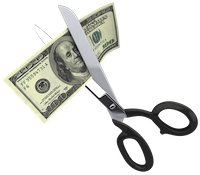 According to the Federal Trade Commission (FTC), coupons are a big business. There are more than 3,000 manufacturers that annually distribute nearly 330 billion coupons that are worth an estimated $280 billion. Best estimates available suggest that 77% of American households use some eight billion coupons a year to save $4.7 billion on their grocery bills.
According to the Federal Trade Commission (FTC), coupons are a big business. There are more than 3,000 manufacturers that annually distribute nearly 330 billion coupons that are worth an estimated $280 billion. Best estimates available suggest that 77% of American households use some eight billion coupons a year to save $4.7 billion on their grocery bills.
With this type of marketplace it is easy to understand why opportunistic criminals would be interested in the industry, particularly given the economic plight of the moment caused by the Great Recession, which we cannot seem to escape. Tough times cause people to be more cost conscious, but this also provides the perfect cover for con artists and scammers. Consumers need to be wary.
This issue is topically relevant as the result of a joint investigation that recently took down a coupon counterfeiting ring. Robin Ramirez, Amiko (Amy) Fountain, and Marilyn Johnson were recently arrested by the Phoenix Police Department which executed search warrants at three different locations as part of a multi-agency investigation of an alleged organized criminal enterprise that sold counterfeit coupons via eBay and other Internet venues. If convicted on all charges, the defendants face prison time and numerous financial penalties, including, but not limited to, fines and restitution.
Bud Miller, Executive Director of the Coupon Information Center (CIC), a not-for-profit industry association that is made up of consumer product manufacturers that was founded to encourage integrity in connection with the redemption of manufacturers’ coupons, issued a statement about the above mentioned investigation that resulted in the arrest of three counterfeiters. Miller said: “This investigation is an excellent example of the public-private partnership made possible by the efforts of CIC, The Hershey Company, PepsiCo, Procter & Gamble, and other CIC Members. We look forward to all the facts coming to light and for justice being served to any individuals and organizations who may have created, sold or used counterfeit coupons or otherwise violated the victims’ intellectual property rights.”
“This case clearly demonstrates the dangers of purchasing coupons on the Internet, whether it is from independent websites, e-mail or from online auctions,” Miller added. “Coupon buyers expose themselves to the possibility of becoming involved with counterfeits, stolen property or other criminal activities. They may also expose themselves to additional risk by providing their names, home addresses and financial information to organized crime rings.”
The FTC would concur that counterfeiting coupon scams are a real problem. According to the FTC, there is but one single way to legitimately use a coupon: “Cut it out of the newspaper or other source and use it toward the purchase of the designated product. A coupon is meant to be used only by the consumer who buys the product for which the coupon is printed. Selling or transferring coupons to a third party violates most manufacturers’ coupon redemption policies—and usually voids the coupon.” The FTC also points out that “[o]nly a tiny share of coupons issued by manufacturers have no expiration date.” See Facts for Consumers: Costly Coupon Scams.
For the industry counterfeit coupons create a real nightmare. CIC explains that “even the amateurish coupons are often accepted for redemption, creating liabilities for a variety of industry participants. Once a counterfeit is accepted, someone, whether it is a manufacturer or a retailer, is going to have to pay for it, creating uncontrollable liabilities and unnecessary trade relations issues.”
- Guarantees of big profits, high income or amazing savings in a short time.
- Claims that no risk is involved.
- Lots of pressure to act now.
- Claims that this is a hot, “can’t miss” opportunity.
CIC also suggests a few simple guidelines that consumers can follow to easily protect themselves:
- Never pay money for coupons or coupon related “opportunities”
- Beware of invalid disclaimers, such as “You are not paying for the coupons, but for the time and effort it took to clip them.”
- Be wary of any coupon emailed to you by anyone but the manufacturer or its authorized distributor.
- If a coupon is visible on a computer screen, it is probably counterfeit.
- Free product coupons are seldom, if ever, distributed on the Internet.
- If it seems too good to be true, it probably is.
As with nearly all scams the claims sound too good to be true, and they are marked by high pressure tactics that don’t give you time to seriously consider whether you want to be involved. Simply walk away when faced with claims that are too good to be true and either high pressure sales tactics or an extremely narrow window to take advantage of a “limited time offer.” And always remember that these scams work best at times when people are most vulnerable.
Coupon buyer beware!

![[IPWatchdog Logo]](https://ipwatchdog.com/wp-content/themes/IPWatchdog%20-%202023/assets/images/temp/logo-small@2x.png)

![[Advertisement]](https://ipwatchdog.com/wp-content/uploads/2024/03/IP-Copilot-Apr-16-2024-sidebar-700x500-scaled-1.jpeg)
![[Advertisement]](https://ipwatchdog.com/wp-content/uploads/2024/04/Patent-Litigation-Masters-2024-sidebar-early-bird-ends-Apr-21-last-chance-700x500-1.jpg)

![[Advertisement]](https://ipwatchdog.com/wp-content/uploads/2021/12/WEBINAR-336-x-280-px.png)
![[Advertisement]](https://ipwatchdog.com/wp-content/uploads/2021/12/2021-Patent-Practice-on-Demand-recorded-Feb-2021-336-x-280.jpg)
![[Advertisement]](https://ipwatchdog.com/wp-content/uploads/2021/12/Ad-4-The-Invent-Patent-System™.png)







Join the Discussion
No comments yet.